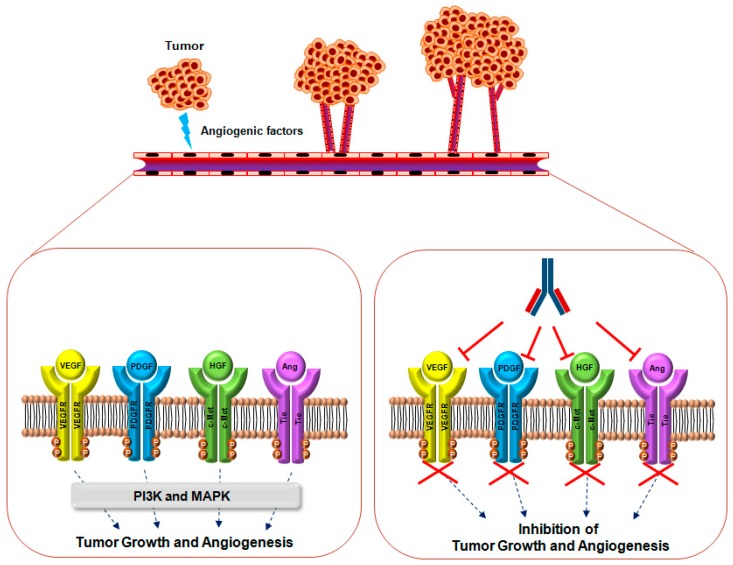Figure 1.
Mechanisms of action of monoclonal antibodies targeting VEGF, PDGF, HGF, Ang, and their receptors for suppressing tumor growth and angiogenesis. Under pathological conditions, including hypoxia, most tumor cells and/or adjacent cells upregulate the expression of many angiogenic factors, including VEGF, PDGF, HGF, and Ang, and secrete them within the tumor microenvironment. When these molecules bind their cognate receptors, receptor dimerization and autophosphorylation stimulate downstream signaling molecules including phosphatidylinositol-4,5-bisphosphate 3-kinase (PI3K)/v-Akt murine thymoma viral oncogene (Akt) and MAPK (dash lines) for the promotion of tumor growth and angiogenesis. Currently, most antibody therapeutics are being developed to block the interaction between agonists and their receptors (T arrows).

